
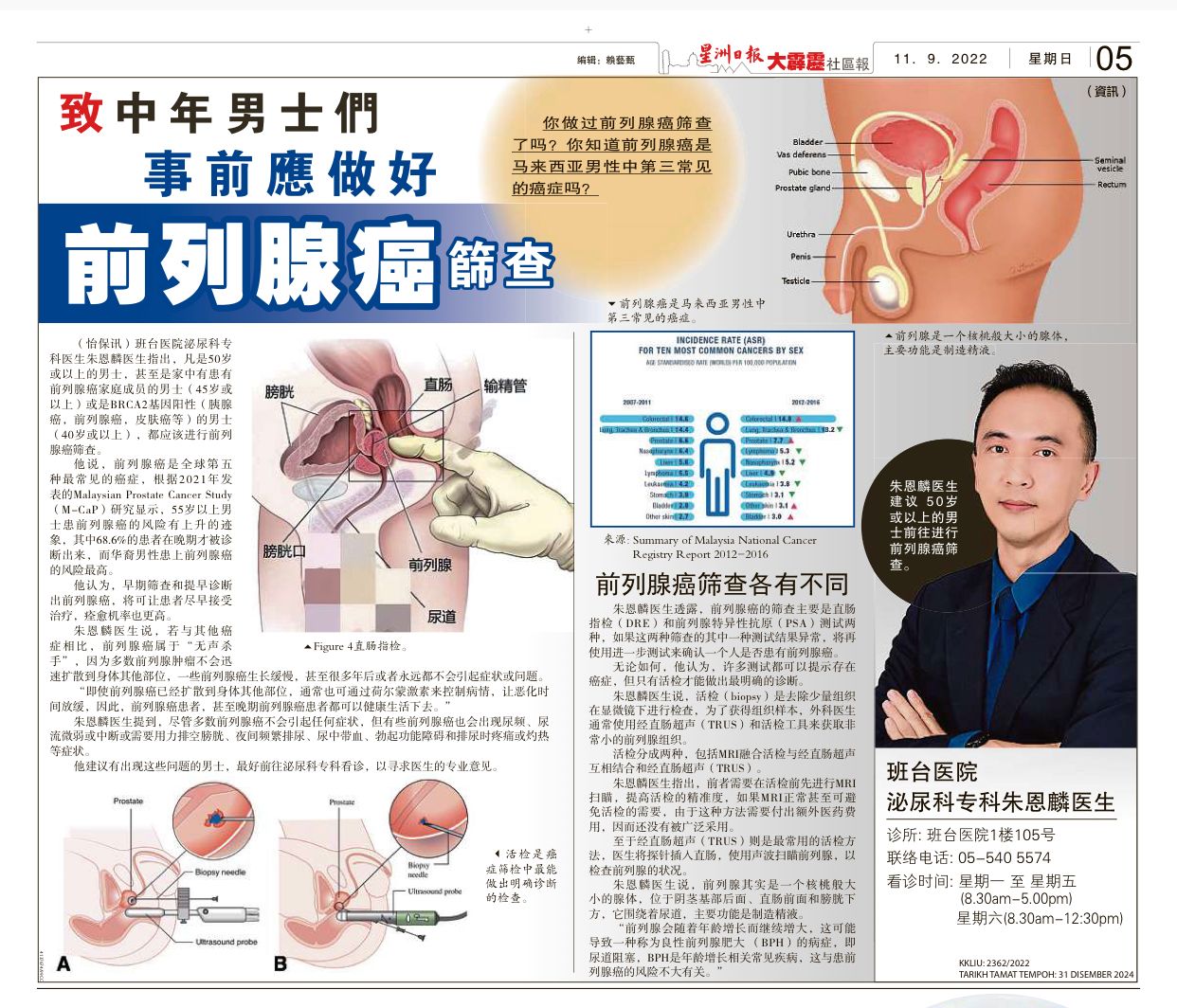
For middle-aged men
Prostate cancer screening should be done beforehand
(IPOH) Have you ever had a prostate cancer screening? Did you know that prostate cancer is the third most common cancer among men in Malaysia?
Dr. George Choo Eang Leng, a specialist in urology at Pantai Hospital, pointed out that all men aged 50 or above, even men with family members (45 years old or above) with prostate cancer or BRCA2 gene positive (pancreatic cancer, prostate cancer, skin cancer, etc.) Men (40 years or older) who have prostate cancer, etc.) should be screened for prostate cancer.
he said, prostate cancer is the fifth most common cancer in the world, and according to the Malaysian Prostate Cancer Study (M-CaP) study published in 2021, men over 55 have an increasing risk of prostate cancer, with 68.6% of Patients were diagnosed at an advanced stage, and Chinese descent had the highest risk of prostate cancer.
He believes that early screening and early diagnosis of prostate cancer will allow patients to receive treatment earlier and have a higher chance of recovery.
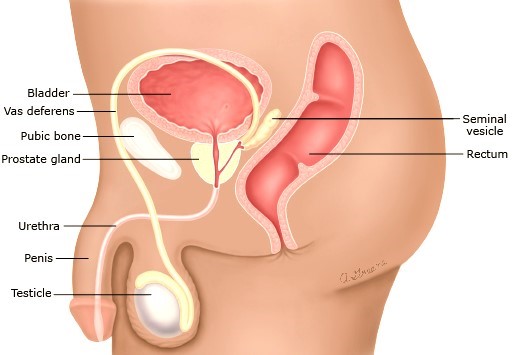
Dr. George Choo Eang Leng said prostate cancer is a "silent killer" when compared to other cancers, because most prostate tumors don't spread quickly to other parts of the body, and some prostate cancers grow slowly and cause no symptoms or problems even years later or never.
"Even if prostate cancer has spread to other parts of the body, hormones can usually control the disease and slow down the progression of the disease, so prostate cancer patients, even those with advanced prostate cancer, can live healthy lives."
Although most prostate cancers do not cause any symptoms, but there is some prostate cancers can also experience frequent urination, weak or interrupted urine flow or the need to forcefully empty the bladder, frequent urination at night, blood in the urine, erectile dysfunction and urination, symptoms such as pain or burning, Dr. George Choo Eang Leng mentioned.
He suggested that men with these problems should go to a urologist to seek professional advice from a doctor.

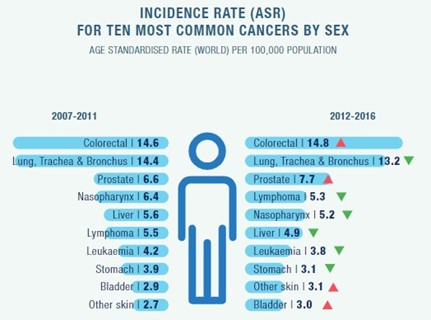
Varies Prostate Cancer Screening
Dr. George Choo Eang Leng revealed that the screening of prostate cancer is mainly two types of screening which is digital rectal examination (DRE) and prostate-specific antigen (PSA) test. If one of these two screening tests has abnormal results, further tests will be used to confirm one. whether a person has prostate cancer.
In any case, he believes that many tests can suggest the presence of cancer, but only a biopsy can make the most definitive diagnosis.
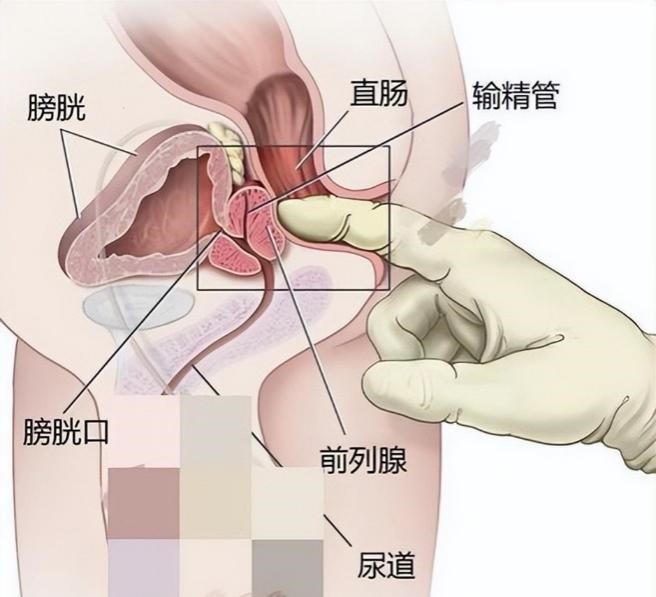
Biopsy is the removal of a small amount of tissue for examination under a microscope, Dr. George Choo Eang Leng said. To obtain tissue samples, surgeons typically use transrectal ultrasound (TRUS) and biopsy tools to obtain very small prostate tissue.
There are two types of biopsy, including MRI fusion biopsy combined with transrectal ultrasound and transrectal ultrasound (TRUS).
Dr. George Choo Eang Leng pointed out that the former requires an MRI scan before the biopsy to improve the accuracy of the biopsy. If the MRI is normal, the need for a biopsy can even be avoided. Since this method requires additional medical expenses, it has not been widely used.
Transrectal ultrasonography (TRUS) is the most used biopsy method. The doctor inserts a probe into the rectum and uses sound waves to scan the prostate to check the condition of the prostate.
Dr. George Choo Eang Leng said that the prostate is actually a walnut-sized gland located behind the base of the penis, in front of the rectum and under the bladder. It surrounds the urethra and its main function is to produce semen.
"The prostate continues to grow with age, which can lead to a condition called benign prostatic hypertrophy (BPH), a blockage in the urethra. BPH is a common condition associated with ageing and is not associated with prostate cancer risk. ."
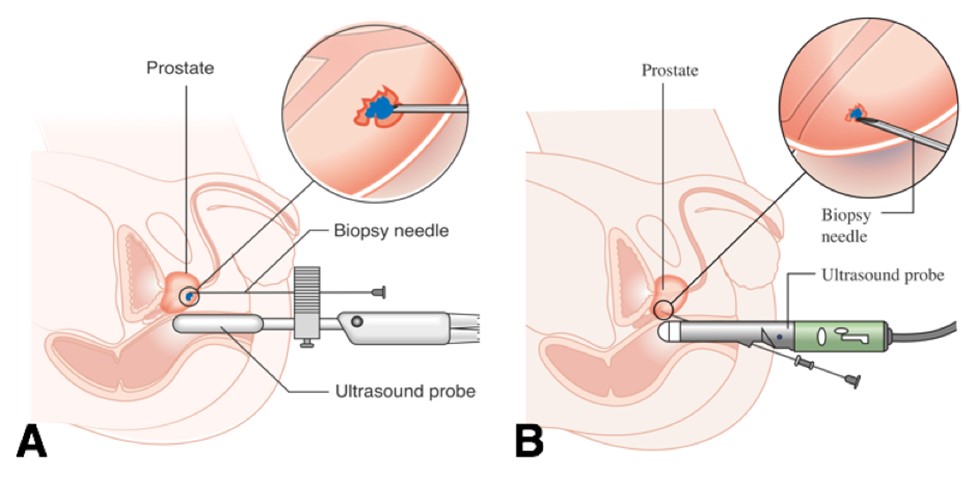
This article was contributed by Dr. George Choo Eang Leng, Resident Consultant Urologist at Pantai Hospital Ipoh. To know more about where and when to see Dr. George Choo Eang Leng at his clinic, click here.

